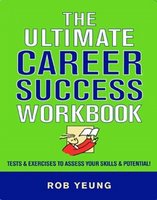Self-awareness - and most people's lack of it
Think you have a good sense of humour? Think you are a better than average driver? The answers are probably yes.
It may be true for you, dear reader. But studies generally show that most people actually have very little self-awareness of their actual strengths and weaknesses. To get technical, the research shows that the correlation between self-perceptions and performance typically hovers around 0.29 - which ain't very high at all.
This is true also of skills in the workplace.
This was brought home to me just last week when I was running an assessment centre for some senior managers. The managers were applying for a senior role that would have put them in charge of ten times as many people as they currently had responsibility for. And as part of the assessment centre, they had to give a 20-minute presentation and then answer questions for another 20 minutes. But I was gob-smacked by how bad some of them were. Some of these guys had put themselves forward for this job even though they were clearly, clearly wrong for the job. All of us interviewers could see it and we felt embarrassed for them. But the amazing bit was that they didn't realise that they were totally out of their depth at all.
The reality is that most people overestimate their ability. And the ones who underestimate their ability are often the ones who are actually better at it then average! In other words, hardly anyone ever thinks that they are 'average'. In fact, the average person believes themselves to be more socially skilled, disciplined, leader-like, and better judges of character than the average person. Clearly, even a basic understanding of maths shows that the average person can't be above average!
To go on, most people overestimate how long it will take to do tasks. Most people at work overestimate their popularity. Most people at work underestimate the extent to which their mistakes have been noticed by the people around them.
Unfortunately, these biases make us not very good at the stuff we want to do! It leads us to make more mistakes and to get into situations for which we are clearly not qualified.
Let's cut to the chase. What can you do about it?
Ask for feedback. The research clearly shows that other people are usually better able to predict our success in a variety of situations than we ourselves are able to do. They can often see that our romances are doomed. They can see that we should quit a job because it's wrong for us, or that we should go for a promotion because it's right for us (even if we think we aren't good enough). They can see that we haven't done enough preparation for a big presentation or that we don't have the skill to take on a certain project.
So ask.
But it's tough. I'm sure you can think of plenty of instances in which you've seen other people lacking self-awareness. The trick is learning to identify when it's you who is lacking that critical self-awareness.









